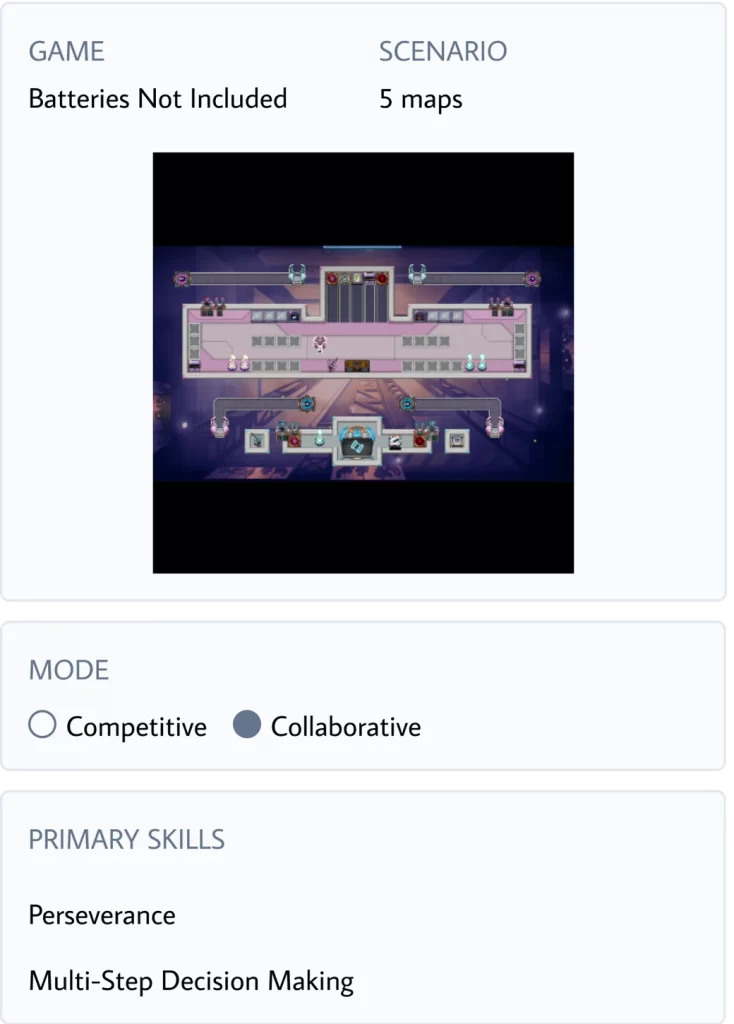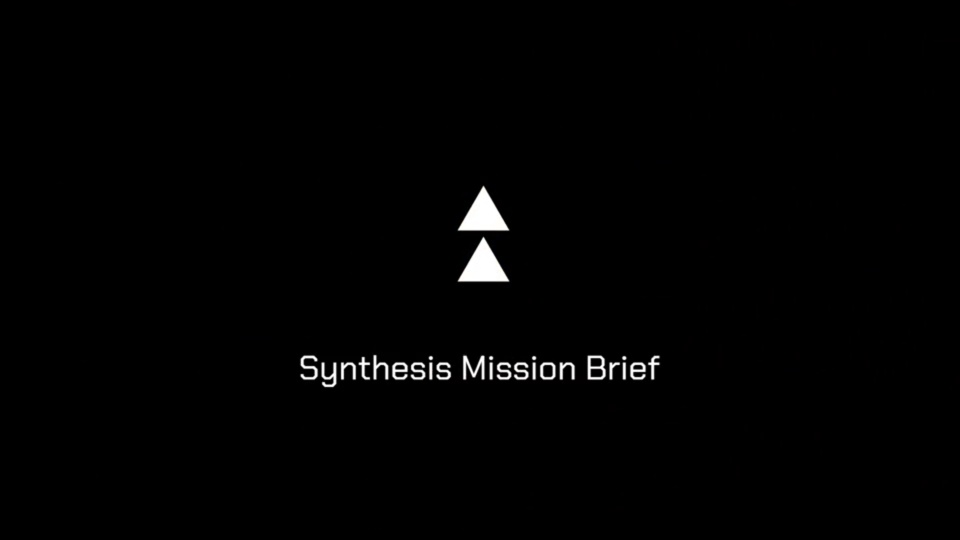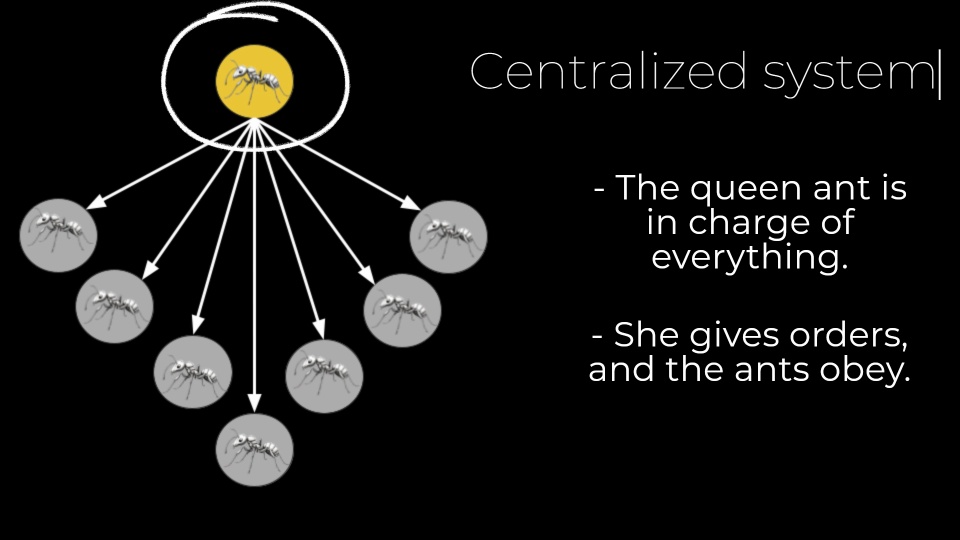本周,学生将通过游戏和讨论探索熵以及集中化与分散化系统的概念。他们将面对团队中的挑战,学习如何在混乱中保持秩序,同时讨论不同决策系统的优缺点。
This week, students will explore the concepts of entropy and centralized vs. decentralized systems through gameplay and discussions. They will face challenges within their teams, learning how to maintain order amidst chaos while discussing the pros and cons of different decision-making systems.
游戏 | Play
电池未含 | Batteries Not Included
熵是指系统从有序状态向无序状态转变的趋势。无论是热力学、生物学,甚至是你孩子的卧室,平静的状态如果不投入能量维持平衡,很容易就会变成混乱。正如我们都经历过的那样,熵也可能发生在团队中。本周,我们挑战玩家合理分配他们的能量,部分用于提前计划,部分用于应对挑战的具体操作,部分用于保持团队的凝聚力和效率,尽管熵的威胁可能使他们分崩离析。本周的成功将解锁“电池不包括在内”中的全新游戏元素。这会很难吗?答案是肯定的。Synthesis的学生能迎接挑战吗?当然可以。
Entropy is the tendency of systems to move from order to disorder. Whether it’s thermodynamics or biology (or even your student’s bedroom), the state of calm can turn into chaos unless energy is put in to keep the balance. And as we’ve all experienced, entropy can also happen to teams. This week, we challenge players to portion their energy, devoting some to advance planning, some to the mechanics of beating the challenge, and some to keeping their team cohesive and effective even as entropy threatens to break them apart. Success this week will unlock a brand new game element in Batteries Not Included. Will it be difficult? Yes. Are Synthesis students up for the challenge? Absolutely.

游戏:电池未含
场景:5张地图
模式:⚪竞争 🟢合作
主要技能:
毅力、多步骤决策
GAME: Batteries Not Included
SCENARIO: 5 maps
MODE: ⚪Competitive 🟢Collaborative
PRIMARY SKILLS:
Perseverance, Multi-Step Decision Making
反思 | Post-play
以下是一些后续反思问题,如果您希望与您的孩子讨论这次经历的话。
Here are some follow-up reflection questions, in case you’d like to discuss the experience with your child.
- 比较本周和上周:哪些策略保持不变?哪些需要调整?
Compare this week to last week: which strategies stayed the same? Which needed to adapt? - 团队作为集中化或分散化系统,哪种方式更容易取得成功?
Will teams be more successful as centralized or decentralized systems?
任务简报 | Mission Brief
好奇的家长可以点击此视频观看学生本周看到的赛前任务简报:
For the curious parent, you can watch the pre-session Mission Brief the students see this week by clicking on this video:

讨论 | Discussions
集中化与分散化系统 | Centralized & Decentralized Systems
在一个团队中,应该由一个人来做决定,还是由整个团队来做决定?集中化和分散化两种系统都有各自的优势和劣势。本周,学生们将探讨从运动队到家庭等不同组织的例子,并讨论在集中化或分散化系统下,哪种方式更有效率、更有创意,甚至更幸福。这没有绝对的对错答案,只有与来自世界各地的孩子们的有趣对话。
On a team, who should make decisions: one person, or the whole group? Both types of systems — centralized and decentralized — have their strengths and weaknesses. This week, students will explore different examples of organizations, from sports teams to families, and discuss whether it would be more efficient, more creative, and even more happy under a centralized or decentralized system. No right or wrong answers here, just interesting conversations with kids from around the world.

讨论介绍 | Discussion Intro
好奇的家长可以点击此视频观看学生本周看到的赛前讨论简报:
For the curious parent, you can watch the pre-session Discussion Brief the students see this week by clicking on this video:

